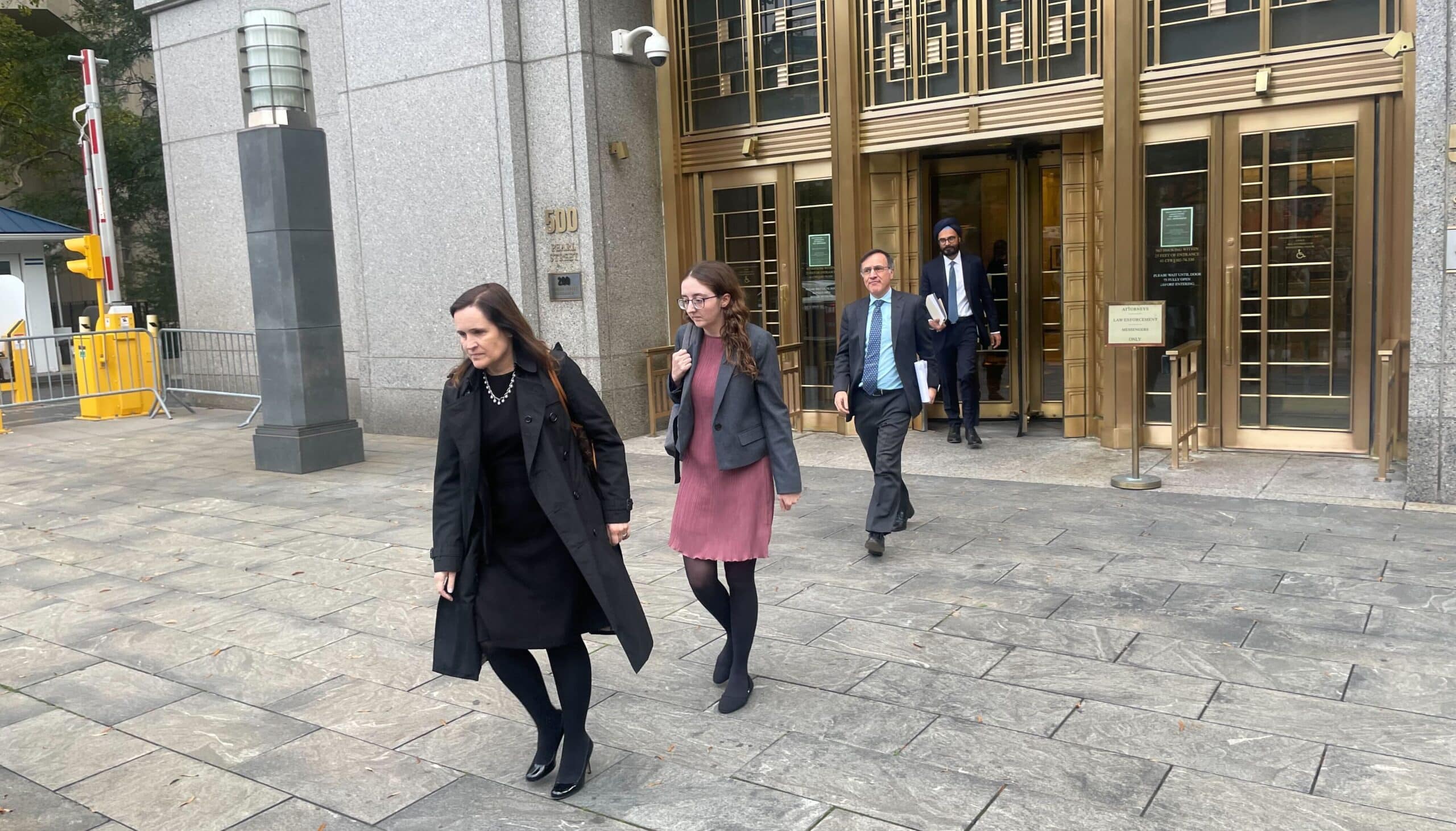On Tuesday, Caroline Ellison, the most prominent co-conspirator to FTX co-founder and former CEO Sam Bankman-Fried, was sentenced two years in prison, plus three years supervised release, for her role in the FTX fraud.
The sentence, which also includes $11.02 billion in restitution, was surprising, as many had expected that the judge would impose no prison time.
Still, it was lenient compared to Bankman-Fried, who received a sentence of 25 years last March. Explaining the difference, Judge Lewis Kaplan said, “I’ve seen a lot of cooperators in my 30 years … I’ve never seen one quite like Ms. Ellison. I don’t remember that she was ever caught in the slightest inconsistency between the documents in evidence and what she said on the stand.” He concluded, “That’s cooperation. Mr. Bankman-Fried was the opposite.”
He, like the prosecutors, emphasized the stark differences between her behavior and Bankman-Fried’s, observing that Ellison had expressed remorse from right after the collapse in an infamous staff meeting that was secretly recorded as well as during the trial. (She did so again in the courtroom Tuesday, when she made a speech through tears, apologizing to everyone from the FTX victims to her own friends and family.)
In contrast, Kaplan said, SBF’s remorse seemed to be over the fact that he had gotten caught.
Judge Kaplan also expressed sympathy for the “serious price” she paid emotionally, since many aspects of her private life had been picked over by the public.
However, he said to Ellison, “You were a strong person in some ways but you weren’t inviolable … and Mr. Bankman-Fried had your kryptonite.”
Kaplan said Ellison was caught up in SBF’s scheme, in which he directed her to mislead lenders and make investments with money it didn’t have. His trading firm, Alameda, where she was CEO, used $8 billion in FTX customer money for those expenditures, which included venture investments, political and charitable donations, and real estate.
From behind, Ellison, wearing the same mauve dress and gray jacket she had worn one day during her testimony last fall, did not seem to react. Her parents and sisters sat behind, with her father holding his wife by the waist when they stood, and her mother seen using a tissue as the courtroom let out.
The judge recommended she be placed in a minimum security prison and agreed, upon request by her counsel, that the Bureau of Prisons seek a venue near Boston.
In her emotional speech before Kaplan handed down his sentence, Ellison said, “Not a day goes by when I don’t think about all the people I’ve hurt.” Comparing the vast numbers of customers and amounts of money involved in the FTX fraud to the mind-boggling amounts of money she used to trade, she said, “My brain can’t understand the scale of the harm I’ve caused.” She finished by saying that no matter what her sentence was, she would spend the rest of her life trying to make amends.
Ellison had pleaded guilty to two counts of conspiracy to commit wire fraud, two counts of wire fraud, one count of conspiracy to commit money laundering, one count of conspiracy to commit commodities fraud, and one count of conspiracy to commit securities fraud. All told, the maximum sentences for each offense totaled 110 years.
The prosecutors, the Probation Department, and Ellison’s own lawyers were all roughly in alignment before the sentencing, with the Probation Department recommending time served, as well as three years of supervised release, and although the government’s prosecutors did not recommend a specific sentence, they told Judge Kaplan that her cooperation was “not only substantial, but exemplary.”
Read more: How Sam Bankman-Fried’s Sentencing Went Down: A Timeline of Events
Ellison’s lawyers had requested that her sentence be limited to time served with a a term of supervised release that they requested be “sufficient, but not greater than necessary.”
Prosecutors praised Ellison for the level of cooperation she showed. “What is particularly unusual about the speed of Ellison’s cooperation,” they wrote, “is how many times she met with the Government in a short span of time, and how quickly she pleaded guilty to the full slate of misconduct related to her participation in a complex financial fraud.”
They cited how “critical” Ellison’s testing was to the indictment and conviction of Bankman-Fried, from the details around the actual crimes to how they were perpetrated, as well as what Bankman-Fried’s mindset was.
Prosecutors also seemed to have a sympathetic view of Ellison. Noting the harsh online commentary and rabid social media response to the case, they wrote that “The Government cannot think of another cooperating witness in recent history who has received a greater level of attention and harassment.”
Among the various arguments Ellison’s own lawyers gave for recommending a light sentence were factors such as that she had helped the FTX estate “protect and preserve … hundreds of millions of dollars in Debtor assets for the benefit of creditors,” as FTX CEO John Ray, who is in charge of the bankruptcy process, put it. Her lawyers also noted how her detailed testimony “definitively established [Sam Bankman-Fried’s] criminal ‘mens rea,'” a legal term for intent to commit wrongdoing—in this case, take FTX customer funds.
They added that “Her testimony was so devastating to Mr. Bankman-Fried that substantial portions of the government’s closing argument and this Court’s comments at Mr. Bankman-Fried’s sentencing quoted Caroline extensively.”
In March, Bankman-Fried was sentenced to 25 years in prison for his role in the fraud, though he maintains his innocence to this day and is appealing the case.
Ellison, who is barred from ever working in finance or crypto again, is now doing volunteer work and writing fiction as well as a math textbook with her parents, according to her lawyers.



